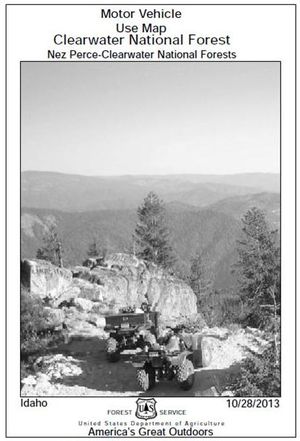Clearwater travel plan challenged by conservationists
PUBLIC LANDS -- Three conservation groups say they filed a lawsuit on Dec. 5th in Idaho Federal District Court challenging the Clearwater National Forest Travel Plan. The recently released plan determines which trails and roads will be open to motorized vehicles and which areas of the national forest will be open to snowmobiles.
The plan defers the decision on the ultimate size and extent of the road system.
The Friends of the Clearwater, Alliance for the Wild Rockies and Sierra Club contend that rather than protect key wildlife habitat and wild areas, as prescribed in the forest plan, the travel plan allows motorized vehicles to enter sensitive wildlife habitat in the
backcountry on trails not designed for motorized use.
The organizations also contend that the travel plan does not minimize summer or winter off-road vehicle damage or minimize damage to wildlife habitat, watersheds or quiet recreation.
Gary Macfarlane of Friends of the Clearwater says the 1987 Clearwater National Forest plan was supposed to protect the natural resources with its specific standards set for the protection of wildlife in certain backcountry areas.
“Since then, motorized vehicles have been essentially unregulated on backcountry trails, severely degrading both terrestrial and aquatic habitat," he said. "Roadless areas that are prime wilderness candidates, including Weitas Creek and Pot Mountain, have
been overrun with motorized use.”
The plaintiffs note that the Forest Service did not even fully protect its limited recommended wilderness
from motorized vehicles. “Even the biologically unique Fish Lake in Kelly Creek, an area recommended for wilderness by the Forest Service, was not protected from vehicle use," says Al Poplawsky of the Sierra Club. "The resource damage from vehicle use in this area has been so serious that the Forest Service has had to close the trail during wet periods in recent years. The trail to the lake and areas around the lake are littered with vehicle parts and broken glass. It would make more sense to just close the entire area to vehicle use.”

